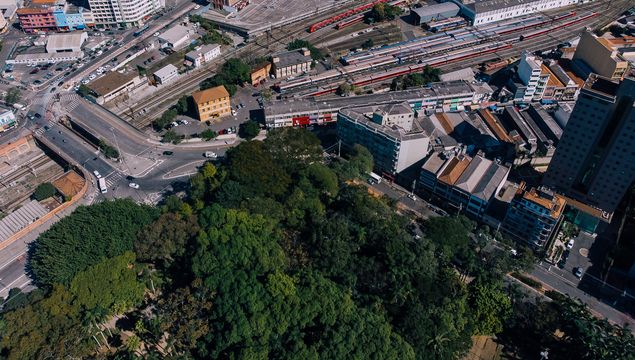Latest Photo Galleries
Brazilian Markets
12h03 Bovespa |
-0,14% | 129.028 |
16h43 Gold |
0,00% | 117 |
12h17 Dollar |
+0,39% | 5,0873 |
16h30 Euro |
+0,49% | 2,65250 |
ADVERTISING
Investments in São Paulo's Parks Have Been Frozen for Five Years
07/23/2018 - 12h27
Advertising
GUILHERME SETO
SÃO PAULO
The city of São Paulo had planned on investing R$ 251 million (US$ 66.5 million) in the renovation and modernization of 106 parks between 2014 and 2017. However, the city merely invested R$ 6.8 million (US$ 1.8 million) - 2.7% of the budget set forth in the Pluriannual Plan, which contains priority and management guidelines.
The volume of investments made over the past four years - three of which were under the administration of Fernando Haddad (PT) and one under João Doria (PSDB) - would have barely been enough to build a single daycare center. The amount of money invested wouldn't have even been enough to pay for the city's bus fare subsidies for a single day.
| foto Gabriel Cabral/Folhapress | ||
 |
||
| Parque da Luz |
In practical terms, investments in São Paulo parks have been brought to a standstill. Despite recent budgetary increases, by the end of 2018, and under the administration of Bruno Covas (PSDB), the city of São Paulo will have completed five years of very modest investments in its parks. The future of such common areas has been put in doubt further due to the uncertainty surrounding initiatives to concede them to the private sector.
Former mayor Doria had promised park-goers that they would start sensing changes at the start of 2017. However, in July, São Paulo governor Márcio França (PSB) took legal action against Doria's project - which had already been put on hold - barring the concession of Ibirapuera Park, referred to by the governor as the "Crown Jewel".
As a result of the legal dispute, parks have not been receiving public investments and the expectation that they will be renovated by the private sector has become increasingly uncertain.
In areas far from the city's central region, problems with parks are more visible, but better known parks have also suffered from the lack of investments. In the case of Ibirapuera, the city's most frequented park, which has over 14 million visitors a year, there is a lack of seating and places to convene, such as benches and tables. Of those that actually exist, many are either broken or outdated. The parks also face other problems, such as a lack of vegetation in several areas, not to mention abandoned buildings, such as the one in Leão Square, which has a damaged roof.
Translated by THOMAS MATHEWSON



